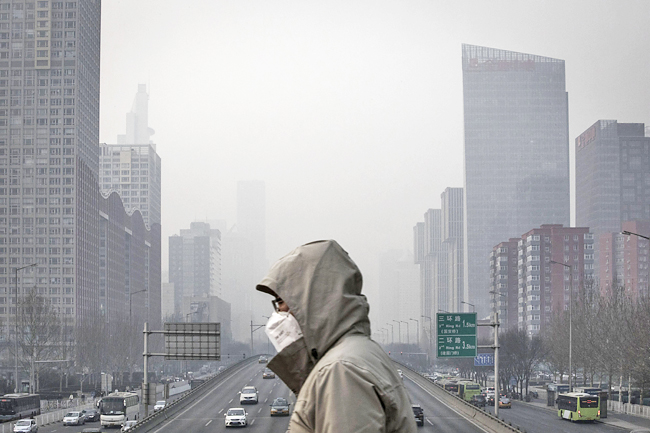BLOOMBERG – Dust tends to get a bad rap: It’s been known to turn skies orange in Europe, and routinely chokes millions with air pollution. But all that dust has an unexpected positive impact, too: It is helping keep the planet just a little bit cooler.
Global temperatures are currently around 2.2 degree Fahrenheit (F) higher than 1850 levels, and heading toward 2.7F of warming, which scientists consider catastrophic. But that 2.2 degree increase would be roughly 0.1F higher were it not for an increase in global atmospheric dust, according to a peer-reviewed study published this week in Nature Reviews Earth and Environment.
“The increase in dust has likely masked some of the power of greenhouse gases to warm the planet,” said co-author of the study and a professor at the University of California, Los Angeles (UCLA) Jasper Kok.
“In the future, when we’re not likely to see similar increases in dust – and might even see a decrease – greenhouse gases might warm the planet even more than climate models already predict.”
To reach their conclusions, Kok and his co-authors started by using satellite and ground measurements to quantify microscopic mineral particles in the air, finding a total of 26 million tonnes – equivalent to the weight of about five million African elephants.

They also gathered data from ice cores, marine sediment and peat bogs to understand buildup of atmospheric dust over time. Since the mid-1800s, they found, the amount of dust has increased by as much as 55 per cent.
The researchers then analysed how atmospheric dust interacts with clouds, oceans, sunlight and land, which play different roles in temperature changes.
While dust over deserts that already reflect sunlight can produce warming, for example, atmospheric dust can also scatter sunlight, alter cloud cover and deposit nutrients such as iron and phosphorus into the ocean.
All of these impacts factored into the researchers’ conclusion that atmospheric dust “net cools the climate”.
“This research is important because it attempts to pin down the effects of dust on the energy that enters and leaves the climate system, and how those effects have changed over time,” said a professor specialising in atmospheric science at Rutgers University, Anthony Broccoli, who is not involved in the study.
He doesn’t expect the findings to substantially alter future climate projections, but says they do provide “a target for improving how dust is represented in climate models”.


